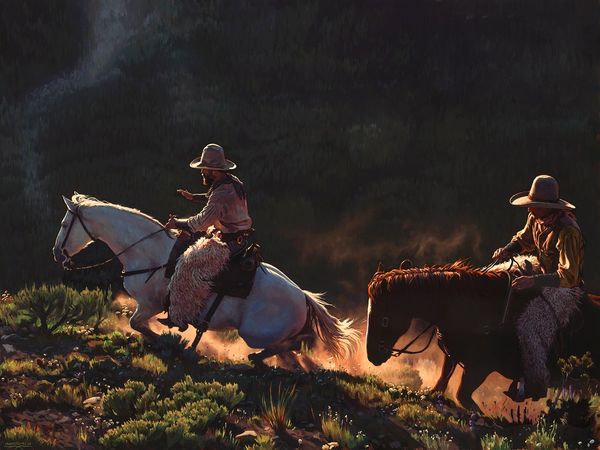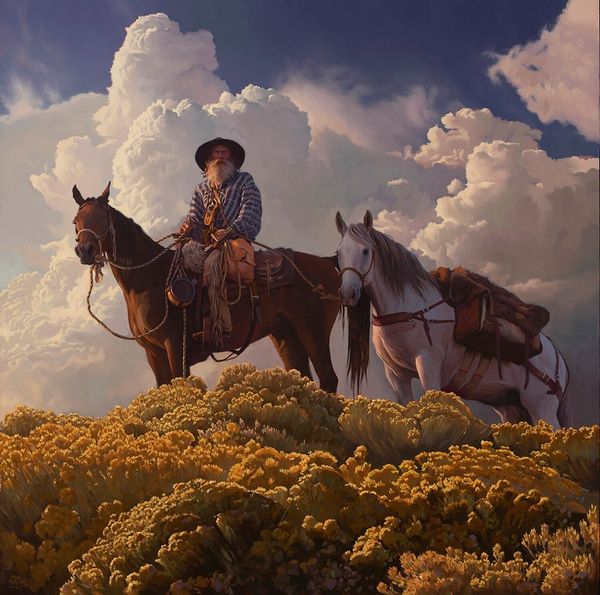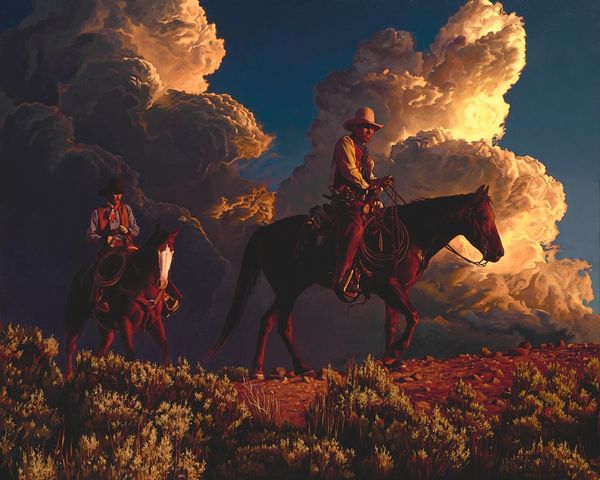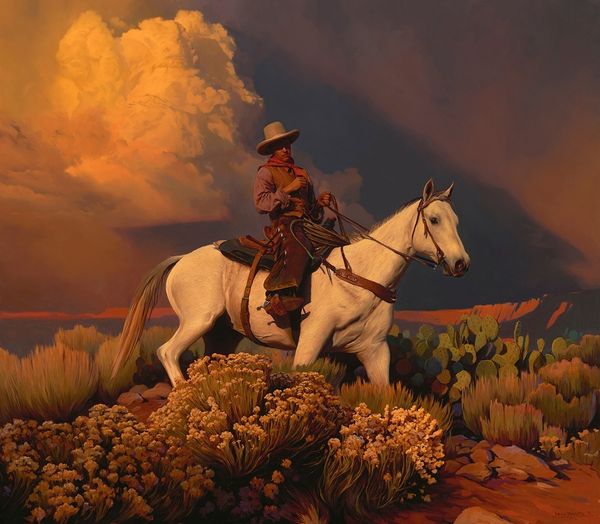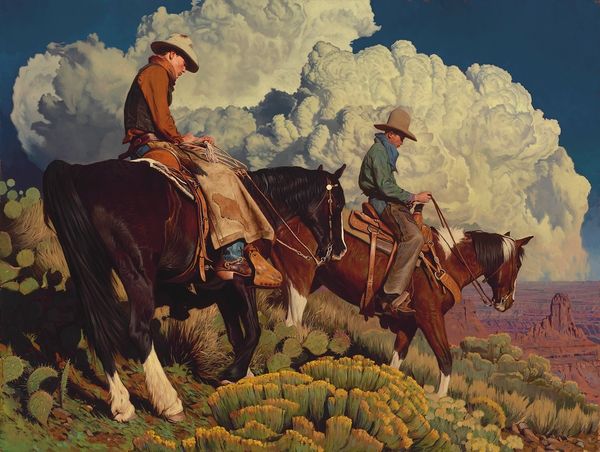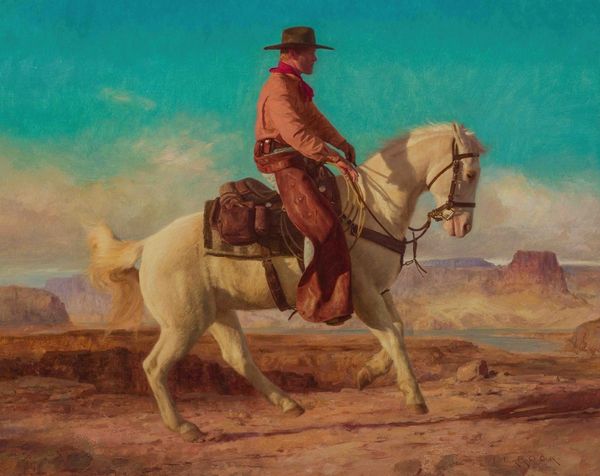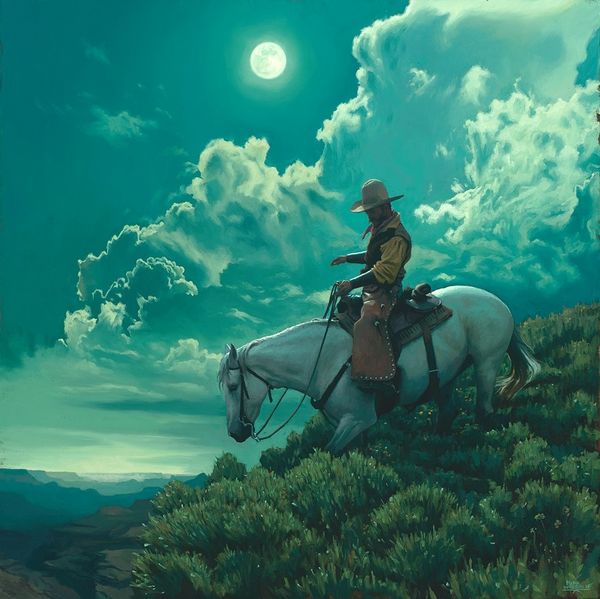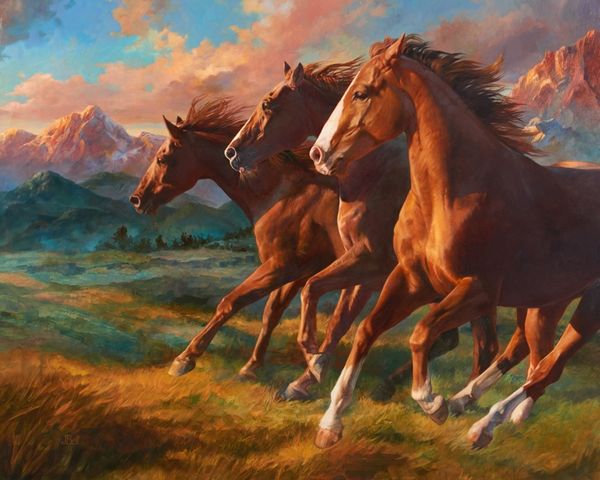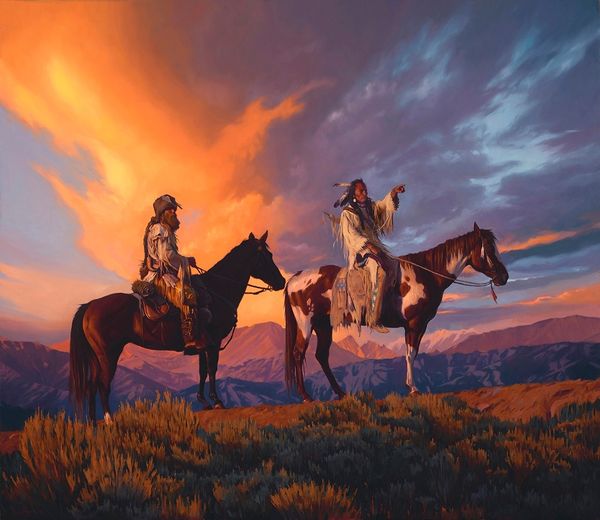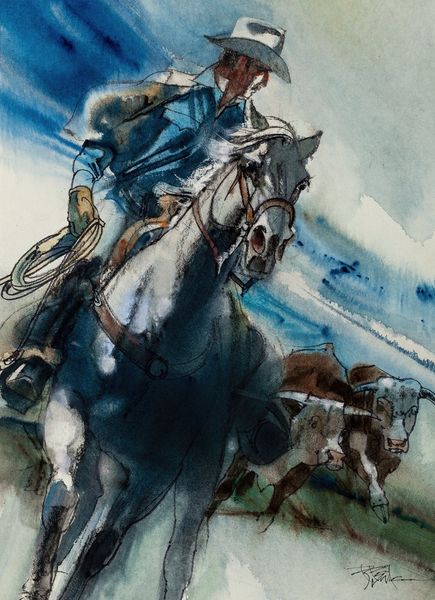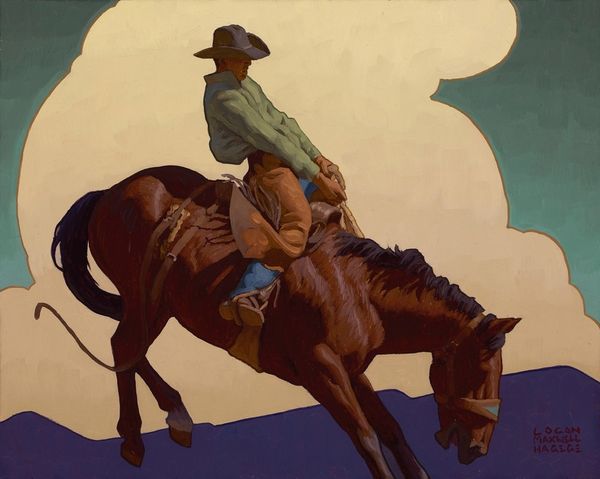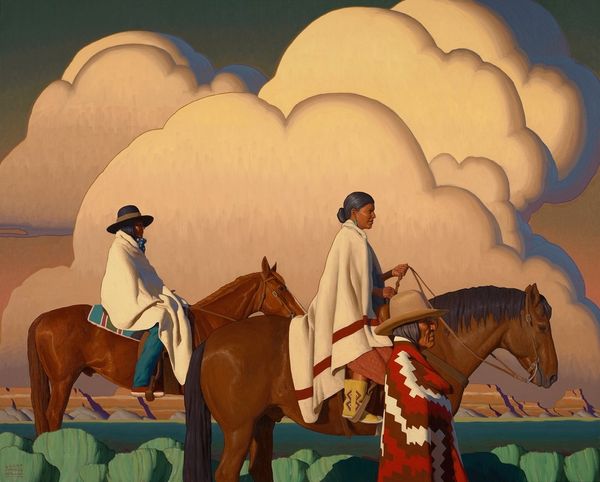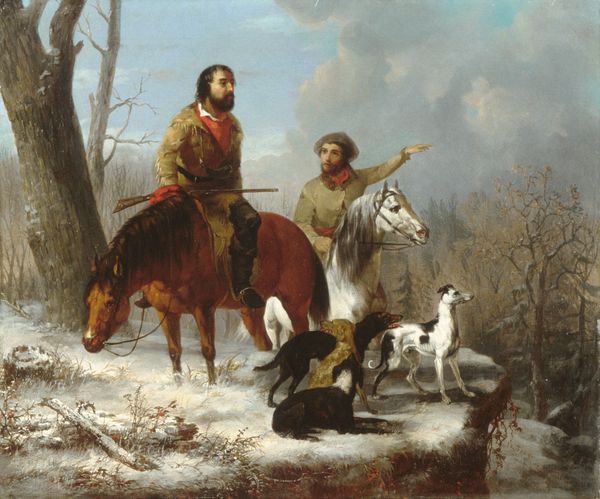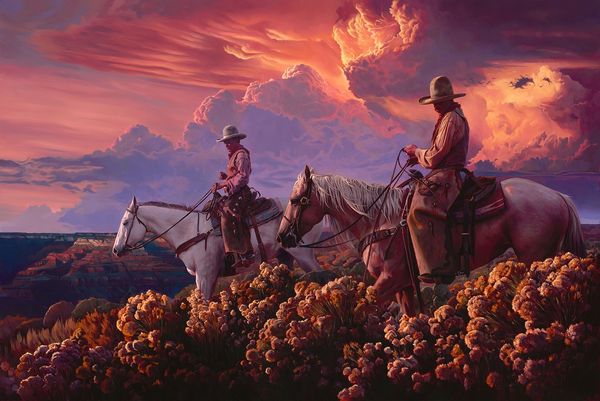
Copyright: Modern Artists: Artvee
Editor: This is Mort Künstler's "They Were Soldiers Indeed," an oil painting from 1995. It depicts Confederate officers on horseback. It strikes me as quite romantic, almost nostalgic, despite the somber subject matter. What do you see in this piece? Curator: Beyond the surface realism, I see a potent commentary on the romanticized narrative of the Confederacy that continues to persist. Künstler, intentionally or not, engages with the Lost Cause mythology. Notice the subdued color palette, the almost ethereal light. These visual choices evoke a sense of longing for a past that, from an intersectional perspective, was built on oppression and injustice. Do you see any evidence of this complexity in the piece? Editor: I suppose I was focusing more on the technical skill and the... well, the artistry of it. I hadn't considered the potential political implications so directly. The almost wistful expressions on their faces contribute to that Lost Cause idea, I guess. Curator: Exactly. It's crucial to remember that art doesn't exist in a vacuum. Works like this offer a lens through which we can examine the ways historical events are interpreted, remembered, and sometimes, strategically manipulated. Consider how this image might function within the context of Civil War reenactments or historical preservation efforts. Who is being centered and whose voices are marginalized? Editor: That makes me think about the absence of enslaved people in the scene. Their forced labor was essential to the Confederacy, but they're completely erased here. Curator: Precisely. It's through those very absences that the painting speaks volumes. By omitting that brutal reality, Künstler reinforces a particular, selective memory of the war. Looking at it this way challenges us to be critical consumers of visual culture and question the narratives being presented. Editor: I’ll definitely look at historical paintings with a different eye now. I appreciate understanding art's role in shaping how we understand history. Curator: And I'm reminded that visual beauty can sometimes mask problematic historical narratives, requiring us to engage with art in a more ethically conscious way.
Comments
No comments
Be the first to comment and join the conversation on the ultimate creative platform.
